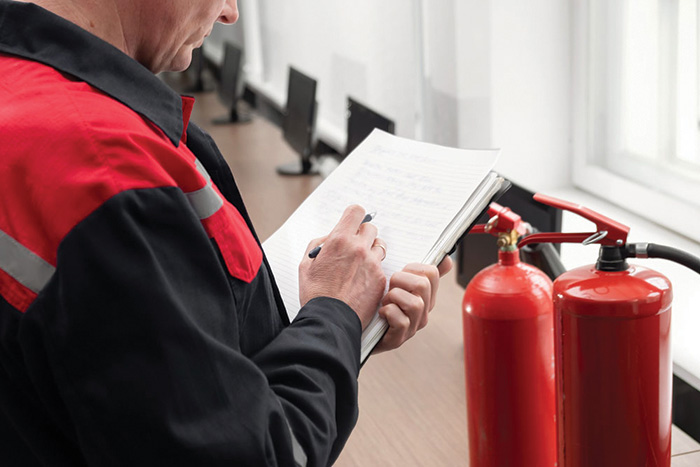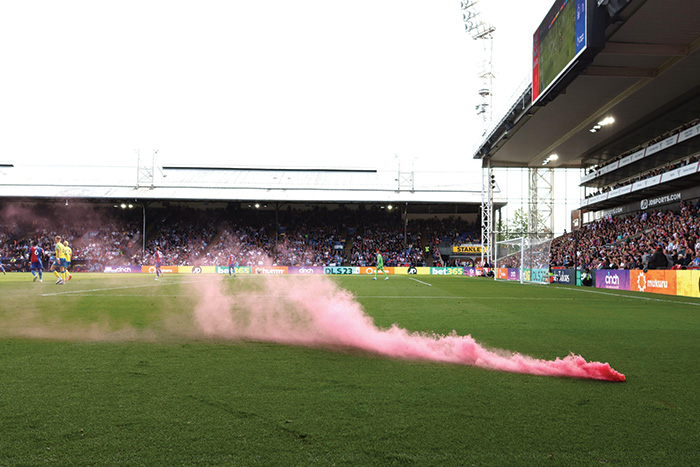Mitigating Assessed Fire Safety Risks At Sporting Venues

John Davidson, the National Security Inspectorate’s Approval Schemes Manager, highlights the critical responsibilities associated with fire risk assessments at sports venues and describes these assessments’ potential impact on a venue’s continued operational integrity.
Today, fire safety at UK sports venues including stadiums is governed by stringent and increasingly rigorous legislation, including the mandatory requirement for a comprehensive life safety fire risk assessment – the results of which can impact the operational integrity of a venue.
This crucial fire safety responsibility falls on designated Duty Holders, who are legally accountable for ensuring fire safety within their premises. These individuals must not only conduct regular risk assessments but also ensure that all recommended measures are implemented, maintained, and periodically updated, including when there is a change in the venue's usage.

Fire & Rescue Services are empowered to enforce compliance through stringent inspections and the issuance of Enforcement Notices when they identify serious unmanaged risks. These notices outline required improvements within a specified timeframe, with severe penalties including unlimited fines and up to two years' imprisonment for Duty Holders who fail to act.
Core Measures

The National Security Inspectorate (NSI), as a leading independent UKAS‑accredited Certification Body, plays a pivotal role in upholding fire safety standards across the UK. NSI audits fire safety providers including life safety fire risk assessors to ensure they are competent, recognising that such assessments form the foundation of every venue's fire safety strategy.
These assessments help identify potential hazards, evaluating risk levels with recommendations on the implementation of necessary safety measures. Effective fire prevention, protection, and suppression strategies encompass both passive and active systems, including fire detection, extinguishing, and alarm systems, all of which are tailored to the specific needs of the venue and work in conjunction with well‑practiced evacuation procedures.
Operational Integrity

Assessment is best conducted at an operational site, since building use changes over time and the assessment is only meaningful in the context of current use, as well as the integrity of physical elements such as escape routes and fire doors. Any changes in use must be accounted for and this is especially important in sporting venues, where older multi‑use facilities are increasingly being replaced by modern, sport‑specific arenas.
As stadiums and arenas evolve into multifunctional spaces hosting a variety of events beyond sports, such as conferences, concerts and private functions, the relevance of a fire risk assessment depends heavily on its alignment with the venue's current usage to ensure continuing operational integrity. Therefore, regular reassessments are essential to address any new or heightened risks.
Competent Solutions

Beyond the legal and regulatory requirements, fire safety is also tied to commercial considerations. A fire incident can severely impact a venue’s reputation and result in significant financial losses due to repairs, business disruption, and the potential for negative publicity.
Duty Holders are not expected to be fire safety experts, yet they bear full responsibility for ensuring compliance with evolving regulations and, more importantly, the safety of everyone present at the venue. To navigate this complex landscape, government guidance suggests that Duty Holders not equipped to conduct fire risk assessments themselves should seek advice from qualified professionals. It is recommended these assessments be carried out by organisations whose assessors have specialist training and experience in the specific type of fire risk assessment required.

For Duty Holders seeking reliable and competent assessors, turning to third‑party certificated providers who meet the highest industry standards and best practices offers substantial reassurance. Providers certificated by a UKAS‑accredited certification body, such as NSI, which is licensed by BAFE (the registration body for third party certificated fire safety service providers across the UK) demonstrate their competency through regular comprehensive independent audits – helping Duty Holders meet their fire safety obligations with confidence.
Click the article to enlarge it.












































